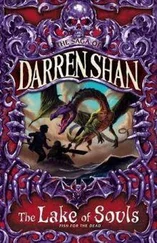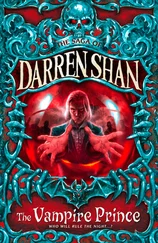Next up for the remaining nine contestants was the event known as the breath of Sabbah Eid, an irony that wasn’t lost on Jebel. They had to stand in the middle of a field, wearing only a piece of cloth around their waists, while burning torches were run over their flesh. The first to scream or faint would be disqualified.
While the other young men sweated, grunted, and sizzled, Jebel relaxed. The flames didn’t mark him, regardless of the fact that the two men working on him pressed the heads of the torches in closer than usual, curious to see how much heat he could take before he blistered. They never found out. While they were trying their hardest to burn Jebel, another boy screamed, signaling the end of the event.
Immediately after that came the swimming race. All eight contestants shuffled down to the as-Sudat, where they plunged into the water and gratefully sought relief from the burns and blisters of the fire. When they were ready, they lined up, then burst into life at a signal from the high lord.
People jogged along the banks of the river, tracking the race on foot, cheering on their favorites. For most, this was now Jebel. Even those who had bet on one of the others were willing him on to victory.
It was soon clear that this wasn’t one of Zarnoug Al Dahbbeh’s best events, and as Jebel streaked to a lead and held it, most eyes focused on the Um Judayda, close to the rear of the pack. While many had wished to see him fail, so as not to pose a threat to their own warriors, now they wanted him to succeed. They were convinced that Jebel was going to win the mukhayret, but they didn’t want him to do so at a canter. With J’Al Rum fading so soon, Zarnoug was the strongest of the survivors. They wanted him to go head to head with Jebel in the later rounds, so they cheered him on and warned him when he was in danger of being overtaken. With their help he came in a safe third from last.
The ten-mile race was next, and because of the numbers involved, three would be eliminated — no more than four were allowed to compete in the penultimate round. With the exception of Jebel, the contestants were weary and strained. A ten-mile jog in the noon heat was a burden they would have happily forgone. But there was nothing for it except to grit their teeth and hope their legs didn’t fail.
Jebel could have led from the start, but he felt sympathetic towards the young men he was racing against and didn’t want to stretch them too far. So he remained with the pack, biding his time, letting J’An take the lead. This was J’An’s best event, the one he had been most looking forward to. His enthusiasm had faded with exhaustion, but once he found himself on the streets, cheered on by the crowds, he discovered fresh strength and doggedly pushed on.
One of the racers fell at the three-mile mark. The others held as a pack until, with just under two miles remaining, Zarnoug Al Dahbbeh increased the pace. J’An broke with him, and so did Jebel. The others were unable to catch them, so they hung back and prepared for the final hundred yards, when they would stage their own contest to determine which of them would qualify with the three in front.
Once Zarnoug was satisfied that they couldn’t be caught, he fell to the rear of the leaders. He wasn’t interested in winning the race but in the next two events, which would determine the overall champion. Let the Rum brothers scrap among themselves for momentary triumphs — he would conserve his power and thrust for glory when it mattered most.
Jebel could have taken the lead, but he knew how much a win would mean to J’An, so he hung back. When J’An crossed the line first, to wild roars of approval, the only person prouder than him and their father was his younger brother Jebel.
When the fourth and final contestant had been decided — a boy from a town in the green belt around Wadi — the draw was made for the second round of wrestling. Most people were hoping for a J’An-and-Jebel pairing, but they were disappointed. Zarnoug was drawn against the elder Rum, while Jebel was to face the boy from the farmlands.
Zarnoug and J’An wrestled first, the best of five throws or pins. J’An was drained after the race. He gave it his all, but nobody was surprised when he lost by three throws to one. He walked away disheartened, but the rapturous cheers of the crowd soothed his disappointment.
Jebel was up next. Some were fearful that he might slip at this late stage and be disqualified. They watched nervously as he dusted his hands and stepped into the circle. But when he caught the boy from the green belt and lobbed him five or six yards at the first attempt, they knew there would be no mistakes. Two more throws followed, then only Zarnoug Al Dahbbeh stood between Jebel and the grand prize.
But how would Jebel fare in the final event? It was a test of skill, not just strength. An executioner had to be more than tough. He needed to be able to sever a neck with an artist’s eye.
Two thick logs were produced. Both had been cut from the same tree and tested for defects. There was a thin mark on both. Each contestant had to chop his log in two, hitting the mark each time. If they both struck true, the one who cut through with the fewest blows would be the winner.
It was a nervous moment when the draw to see who would go first was made. Placing was everything. The one who went second had the advantage. If the first missed the mark when striking, it didn’t matter how many attempts the second took — as long as he was careful and hit the mark each time, he couldn’t lose. So when Zarnoug Al Dahbbeh drew the short straw, the cheers were deafening.
Zarnoug dismissed his misfortune with a shrug and stepped forward. Taking hold of the axe, he fixed his gaze on the log, then brought his axe up, around, and down — and struck true. It was a solid strike, deep into the heart of the log. He put his foot on the log before it stopped shaking and yanked his axe out. A pause, a short breath, then he swung again.
In the crowd a young child’s toes were trampled by a large man eager to get a better view, and the injured boy shrieked aloud. The cry startled Zarnoug, and he struck a fraction wide. His axe bit deep into the log — but he had chipped outside the mark.
Zarnoug threw his axe away, disgusted, and glared at the child. The um Wadi muttered among themselves while the judges debated whether or not to eliminate Zarnoug. Before they could conclude their deliberations, Jebel stepped up, grabbed his axe, and swung it into his log, far wide of the central mark.
The crowd bellowed their approval. By fudging his strike, Jebel had negated Zarnoug’s miss, so both had to start again with fresh logs. Zarnoug nodded at Jebel to show his respect, then focused on his breathing and tuned out the sounds of any more screaming infants.
Zarnoug attacked his second log with the fierceness and sharpness of one who had tasted defeat and had no intention of sipping from that bitter well again. His first blow went almost to the middle of the log, his second took him to within a hair’s breadth of severing it completely, and his third finished the job.
The Um Judayda received a standing ovation. It was rare for an apprentice executioner to break a log with just three blows, and even though many in the crowd were against him, they appreciated the skill with which he had struck.
When the applause died away, Jebel stepped forward. Grasping the handle of the axe, he focused on the mark at the center of his log. For a moment he imagined it to be a human neck and shuddered. But then he put that image behind him and pretended it was a link in a chain of injustice. It was slavery, brutality, hatred, ignorance. It was the cry of the bigot who believed all others must think as he did or perish. It was the torment of the suffering, the spirits of the unhappy dead, the snicker of false Masters. It was all that was wrong with Makhras.
Читать дальше







